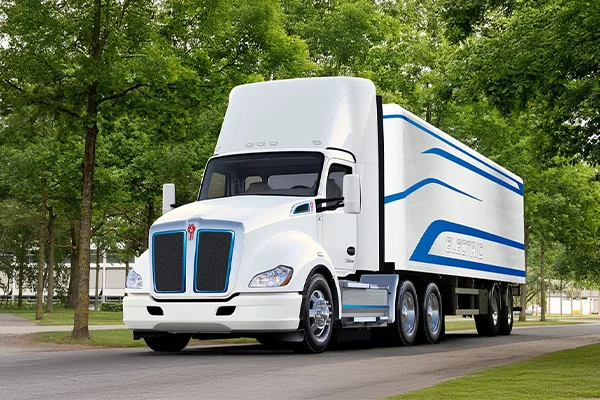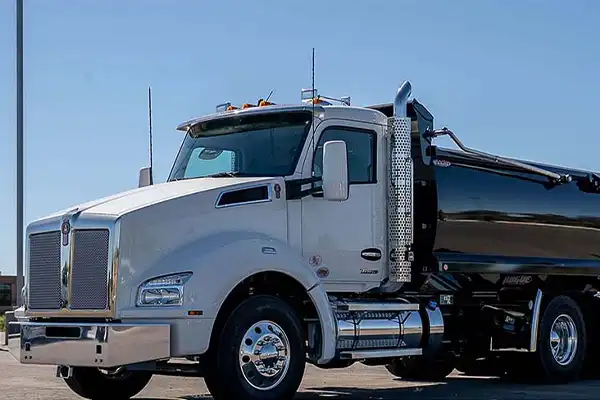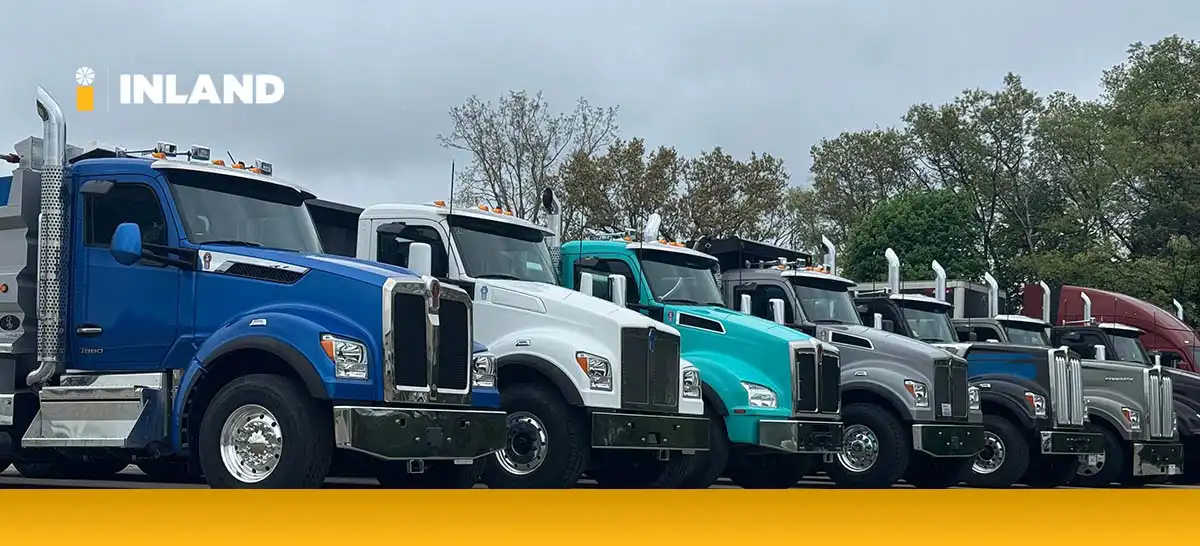
When you’re responsible for managing a fleet, you understand downtime’s unwanted impacts. Schedules and spending can slip, affecting efficiency, performance, and productivity.
Between balancing budgets, maintaining service quality, and keeping drivers safe, you need a reliable approach to reducing breakdowns and managing your trucks more effectively.
Discover the impact of commercial truck downtime and strategies for preventive maintenance.
The Impact of Fleet Downtime on Business Operations
A truck downtime cost is a chain reaction that affects every aspect of an operation. When a vehicle goes down, it contributes to lost hours, delayed shipments, and expenses.
Here’s how downtime impacts operations.
1. Decreases Productivity
Whenever a truck is sidelined, you lose the hours that could’ve been spent delivering loads, serving clients, or turning over revenue. A loss of productivity might also cause dispatchers to rush to reassign routes and drivers to wait longer for assignments.
What used to be a tight, efficient process becomes fragmented, which may require overtime or workaround solutions to stay afloat.
2. Strains Other Vehicles
When a truck goes down, you might have to use the rest of your fleet to pick up the slack. This strain can accelerate wear and tear on the remaining vehicles. Trucks get pushed harder, and maintenance schedules get thrown off.
The more you use the remaining assets, the more they may require service, increasing the chances of additional downtime. Before long, what started as a single mechanical issue may feel like a systematic problem and affect a fleet’s reliability and lifespan.
3. Creates Revenue Loss
When a vehicle isn’t on the road, it’s not generating income. However, payments on leases or loans continue, insurance premiums remain the same, and you could miss out on jobs that help offset ownership costs.
While fleet managers focus on damage control, competitors with operational trucks may be out fulfilling contracts, making deliveries on time, and earning repeat business. Missed deliveries can lead to chargebacks, lost contracts, or clients taking their business elsewhere.
4. Increases Operational Costs
The cost of truck downtime can be hundreds of dollars per day per vehicle. Emergency repairs, towing, temporary rentals, and overtime pay all add up. What could have been a few dollars’ worth of upkeep may snowball into thousands in downstream costs.
Then, there are some hidden expenses you might have to consider. Time lost to rescheduling, productivity declines, and the expenses of running behind on regular vehicle maintenance.
Each instance may feel manageable on its own, but over the span of a year or quarter, these moments may compound and make a dent in profit margins.
5. Results in Customer Dissatisfaction
Reputation suffers when a shipment is late, or a promise goes unmet. Customers might see your organization as a business that fails to deliver. This damages trust, which may be harder to recover from than mechanical failure.
The customer who calls to ask where their delivery is might be polite the first time, understanding the second, and gone by the third.
Loyalty is earned through reliability. When delays become a pattern, your company’s name may become associated with uncertainty, and that’s a risk most businesses can’t afford.
Preventive Maintenance Strategies for Fleet Management
Some fleets may fall behind because their upkeep strategy is reactive, fragmented, or inconsistently enforced. Building a system protects uptime and helps you plan ahead.
Importance of Regular Vehicle Inspections and Maintenance
Small mechanical issues like a slightly worn brake pad, a subtle vibration, or an overdue fluid change may be ignored because they don’t seem urgent. However, regular vehicle inspections allow you to catch those early warning signs before they result in unexpected breakdowns.
Besides catching issues on time, here’s why you should invest in regular upkeep and assessments:
- Increases productivity: When trucks run reliably, everything flows as expected — drivers stay on schedule, and dispatchers don’t waste time reorganizing routes.
- Improves customer satisfaction: Clients care about on-time delivery. Well-maintained trucks help you meet their expectations, which strengthens trust and may keep customers loyal.
- Saves costs: Preventive upkeep may be more affordable than emergency repairs. It also extends the lifespan of a vehicle and reduces downtime-driven expenses.
- Promotes safer operations: Faulty brakes, worn tires, and fluid leaks are safety risks. Well-maintained trucks protect your cargo, driver, and the public.
- Simplifies planning and scheduling: When you have scheduled services and parts replacement intervals, you can plan operations around them.
Schedule Regular Maintenance With a Reliable Service Partner
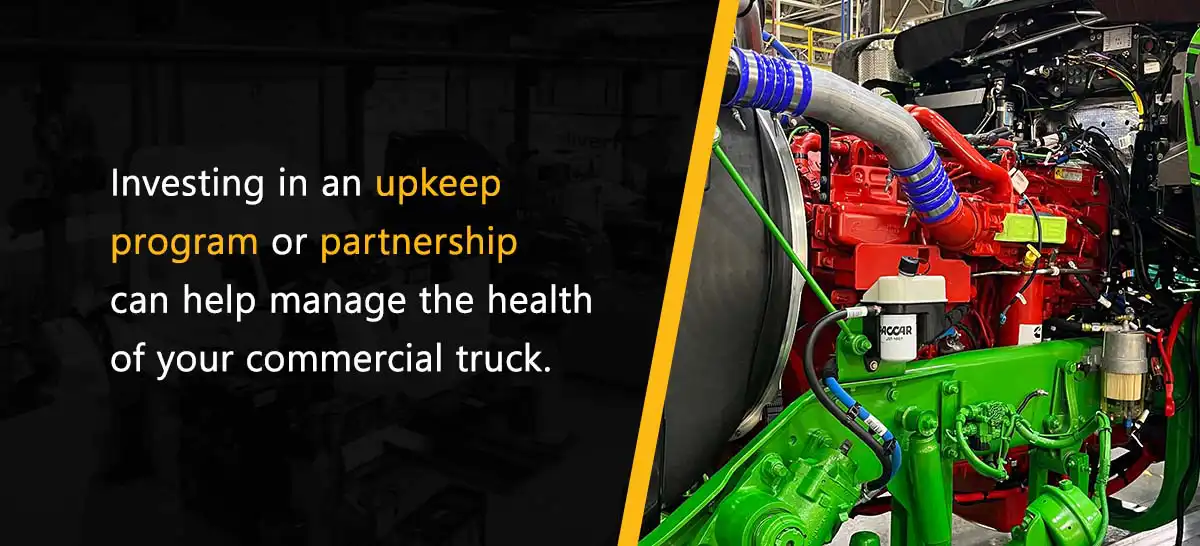
Investing in an upkeep program or partnership can help manage the health of your commercial truck. When you partner with fleet service dealers, you’ll have access to truck service locations staffed with highly trained technicians specializing in various commercial trucks.
Commercial truck service program prices are tier-based, but depending on your plan, you can gain access to the following:
- Comprehensive maintenance program
- 24/7 roadside assistance
- Rentals
- Online fleet management tools
- Online records and reports
- Maintenance cost reporting
- Preventive upkeep inspections and scheduling
- Parts and labor rates
- Tire management
Monitor Fleet Performance Through Telematics Technology
Telematics gives you visibility into how every vehicle performs so you can catch problems early and avoid disruptions.
This technology allows you to track:
- Engine health and fault codes.
- Fuel efficiency and usage.
- Driver behavior.
With this level of insight, commercial truck service providers can help you interpret data or schedule inspections and repairs.
Reducing Maintenance Costs While Maximizing Efficiency
Upkeep will always be a part of your budget, so having the right strategy can help you reduce costs. Here’s how that looks in practice.
Invest in Preventive Maintenance Plans
Preventive upkeep anticipates potential service needs based on performance. With telematics-enabled fleet services, technicians monitor fuel consumption, tire pressure, and engine health.
This, in turn, allows you to achieve the following:
- Avoid breakdowns
- Schedule repairs more efficiently
- Reduce labor costs by consolidating services
- Extend vehicle lifespan and maximize asset value
Train Drivers in Safe and Efficient Driving Practices
Driver behavior impacts maintenance costs. Hard braking, rapid acceleration, sharp turns, speeding, and excessive idling take a toll on a vehicle’s components. Training truck operators in safer, more efficient driving can lead to:
- Less wear and tear.
- Better fuel economy.
- Fewer accidents.
Fleet services can help you track this behavior through a telematics platform, giving you data to support coaching and recognize good habits.
Streamline Parts Inventory and Access
Staying efficient when you’re constantly waiting on parts can be challenging. Delayed repairs, prolonged downtime, and last-minute shipping fees can be costly. Therefore, immediate access to a wide range of parts is essential.
Commercial truck managers can also liaise with dealers like Inland, which has an extensive parts network, including an online parts counter, so managers can locate and order the necessary components.
How to Manage Fleet Downtime Effectively
Downtime because of upkeep needs or mechanical issues is part of the job. However, you can manage this disruption by having systems to keep operations moving.
Here are some downtime fleet management strategies.
Prepare for Unexpected Breakdowns
When a truck goes down, truck owners may wonder how fast they can get it back on the road or what backup plan they have.
You can make use of customized fleet and service plans to get access to:
- 24/7 roadside assistance.
- A vast service network across various locations.
- Highly trained technicians who understand your truck.
- Pre-arranged service agreements.
Streamline Access to Replacement Vehicles and Rentals
You may need to swap out a vehicle when a repair takes longer than expected. This is where truck rental services become convenient.
Most dealers provide flexible terms and durations to suit operational needs. They also maintain their rental vehicles to the same standards as their lease fleet, so you know you’re getting a truck ready to perform.
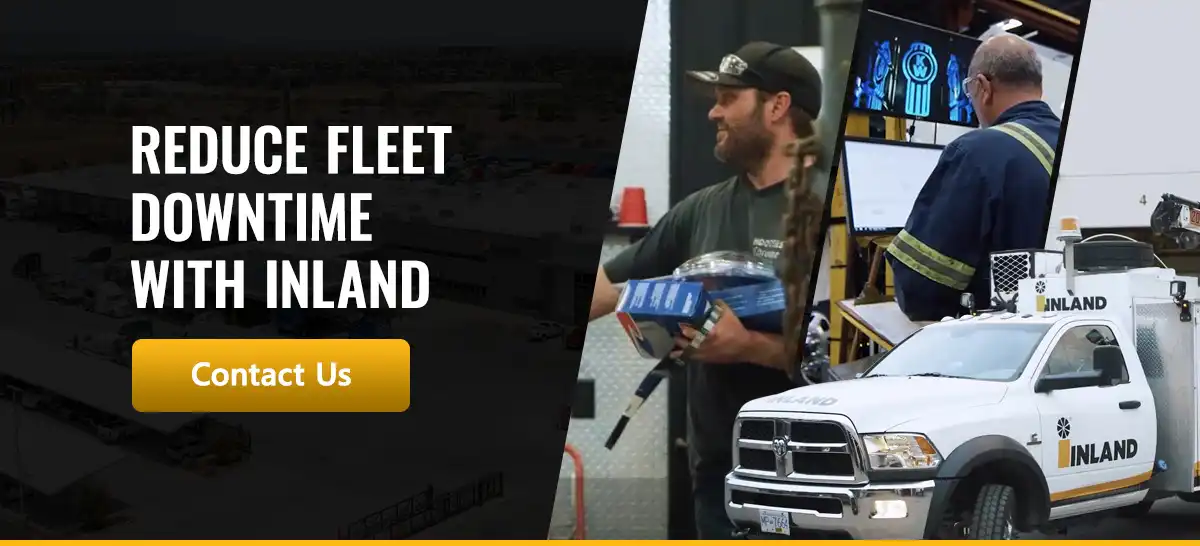
Reduce Fleet Downtime With Inland
At Inland, we know uptime is essential to your team, schedule, and bottom line. Our comprehensive fleet services help managers prevent issues, respond faster when they do happen, and keep operations moving. With over 70 years of experience, we’ve earned the trust of fleet managers across Southern California, New Mexico, and Arizona.
Our certified technicians, telematics tools, and state-of-the-art service centers are here to support you. We offer comprehensive, customizable plans so you can build a program that fits your business and budget. We also have The World’s Best® lineup of Kenworth trucks and an extensive parts inventory.
Contact your nearest Inland dealership today to optimize uptime.
